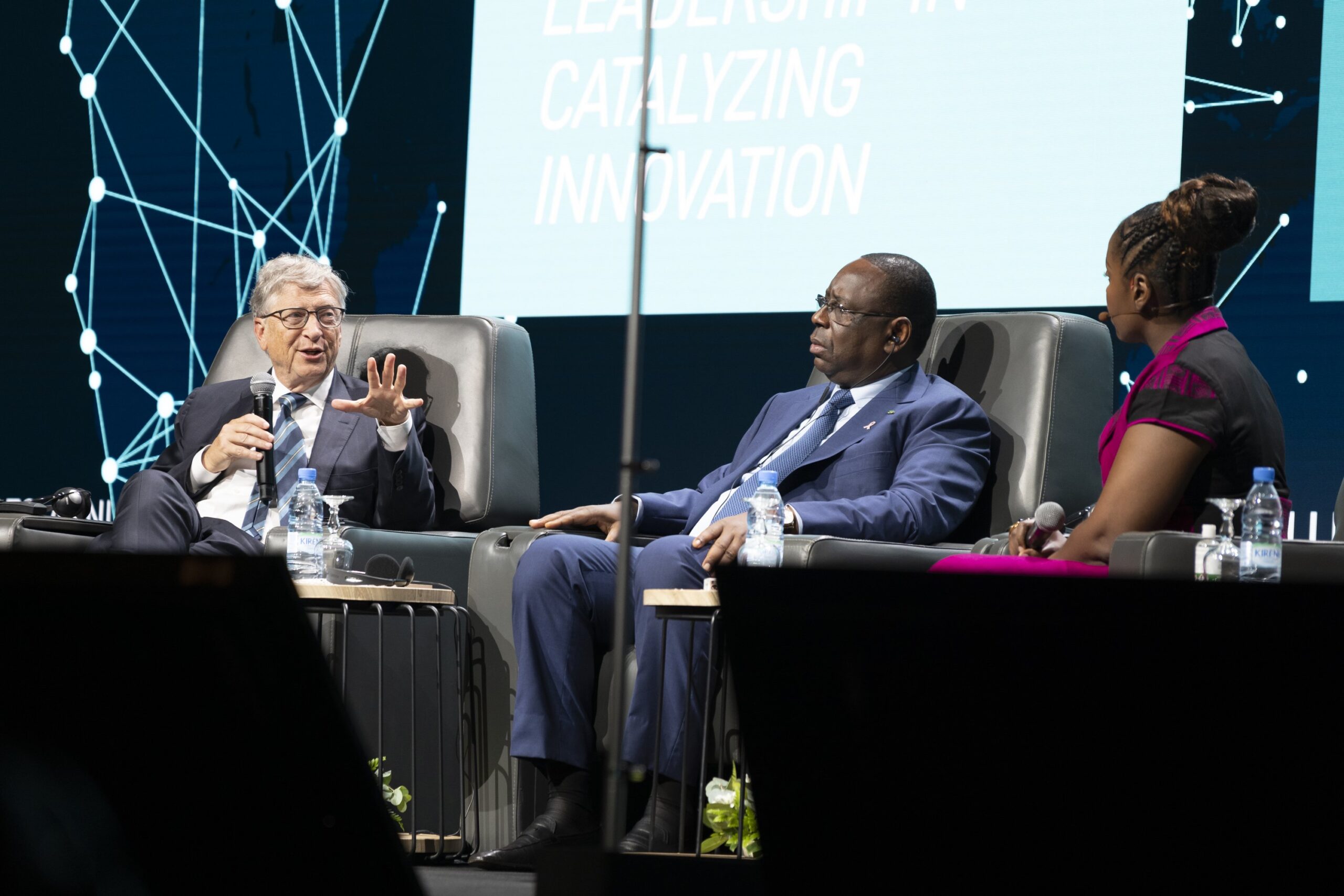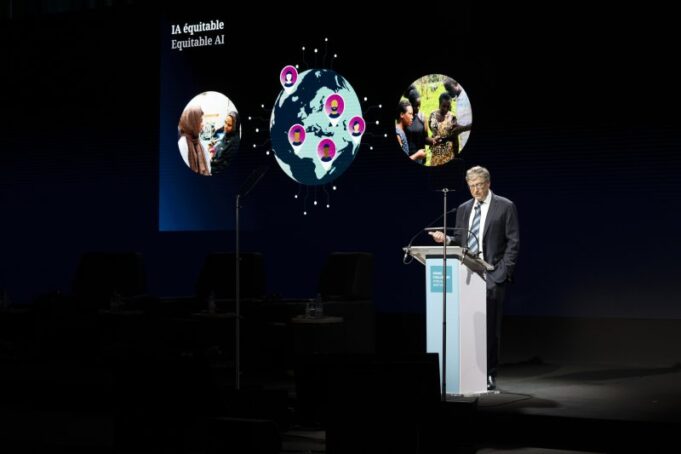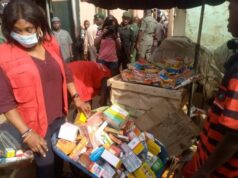This week in Dakar Senegal, scientists and innovators gather to mark the 20th anniversary of the Grand Challenges Annual Meeting hosted by the Bill & Melinda Gates Foundation (BMGF), to discuss problems facing the world and the innovations that are trying to solve them, SEUN AKIOYE reports from Dakar
It was easy to see Bill Gates, co-chair of the Bill & Melinda Gates Foundation (BMGF) was optimistic as he climbed the stage to deliver his much expected speech at the opening plenary of the Grand Challenges Annual Meeting held in Dakar, Senegal.
“When I look back over the history of Grand Challenges, I see a lot to celebrate,” he began to the relief of the hundreds of scientists and innovators who had descended on the Senegal capital to discuss the latest innovation capable of solving health and development problems in the world.
Gates continued, “The state of global health in 2003 was, frankly, awful. Huge numbers of death but tiny amounts of money spent on science to save lives. That lopsided equation is what inspired the partners who created the Grand Challenges. It was shocking and unjust, and we believe we could do something about it,” he said.
Twenty years after, over 1000 scientists and innovators agree with him. From health innovators to scientists tackling rural poverty. Others work in agriculture and this year, many scientists came to display their innovations using Artificial Intelligence.
Gates Foundation commits $40m for vaccine production in Africa
The Grand Challenges was created with two main goals: To spur specific advances that could lead to breakthroughs and inspire brilliant scientists to share big ideas about transforming health in low and middle income countries.
“Grand Challenges started as a single programme funded by our foundation and a few other partners in wealthy nations,” Gates told his audience which include the President of Senegal, Macky Sall and Azali Assoumani, President of the Union of Comoros.

This is the reason for the celebration Gates called for. Today, there are about a dozen Grand Challenges initiatives on four continents and about 4,000 projects in 120 countries.
Kedest Tesfagiorgis, Deputy Director, Global Partnerships & Grand Challenges at the BMGF said this year’s meeting was special as it has expanded to accommodate more journalists, advocates and activists determined to tell innovation stories through different lenses.
“We are constantly looking for new technology and innovation, we need to foster the ecosystem of innovation,” she said. But she was quick to point out that while science can simplify the job, the human piece matters. “The ecosystem thrives when humans are in place,” Kedest said.
President Sall was grateful the meeting came to his country. Before he bestowed on him the honor of “Order of the Lion”, one of Senegal’s highest national honours, he described Gates as one who has impacted the world of innovation through Microsoft and now in health. Sall said research and development must be funded adequately to ensure constant discoveries of innovations.
“Research must be financed adequately. The race for vaccine development after COVID-19 shows lack of global preparedness. COVID taught us no country can feel secured if others are vulnerable. I commend the support for African innovators by the BMGF, but Africa must mobilise to establish bio-technology companies that produce vaccine which can be marketed globally,” Sall said.
I expected to fail- Gates
Gates said he always expected most of the Grand Challenges projects to fail because if they all succeed “it means we aren’t taking enough risks.” And they failed. The project to develop drugs for latent tuberculosis, Target Malaria which aimed to reduce the mosquito population and stop disease transmission and the nutrition bio fortified crops to develop Vitamin A enriched “golden rice”.
But these early disappointments have not stopped the Grand Challenges from challenging itself to continue looking for innovations that would make life better.

Gates: “As important as it is to celebrate the past, it is even more important to plan for the future. AIDS, TB and malaria still kill about two and half million people a year, five million children still die before their fifth birthday, these are preventable deaths.
“To save more lives, we need to keep challenging ourselves to innovate. How can we make vaccines that protect for a lifetime, there are plenty of big scientific challenges to solve, we need to talk about how it will happen,” Gates said.
Building to the future
Gates said the world should tap into Artificial Intelligence now. “We need to make sure that all countries get to participate and benefit, not just the wealthy ones,” he said. He said the world should also rethink how to use regulatory processes.
“We need strong regulatory system that rigorously protect people’s health, regulators cannot cut corners, however as they have done with COVID, Polio, regulators can use their power to consider the full context when making decisions.
“I call upon the WHO to make the emergency declarations needed to unlock additional regulatory pathways for some of the deadliest infectious diseases and I call on the regulatory authorities to use them,” Gates said.
The Grand Challenges meeting would last for three days during which scientist would vigorously debate innovations and technologies that can make the world a better place, focusing on the hardest problems and the most innovative solutions.
And as Gates said, the goal is a world in which all people lead healthy lives. “This is the biggest Grand Challenge of all and I am honored to back you as you work to meet it.”
- How Genetically Modified Mosquitos can end malaria in Africa – Dr. Santos - October 22, 2023
- A night with Africa’s king of pop music, Youssou N’Dour - October 10, 2023
- As scientists gather in Dakar… Africa gets boost for vaccine production - October 9, 2023










